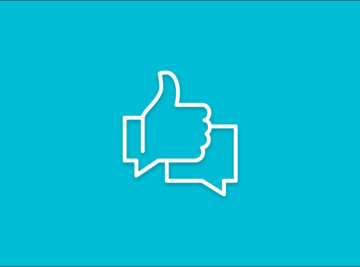#hashtagthis, #hashtagthat. Hashtags have become a huge feature in most, if not all social media platforms. Introduced to us in July of 2006 by Twitter, hashtags took the world by storm in this new digital trend. Aiding in organization and blogging, hashtags are effective in creating niches for certain themes and topics. Some key takeaways from this article:
- Hashtags help social media users find your content
- Twitter, Instagram, LinkedIn, Pinterest all allow you to use hashtags
- Knowing which hashtags to use can dramatically improve your marketing efforts
Below, we outline why understanding hashtags for social media is important for your business and provide hashtag strategies for each popular social media platform you need to know.
What are hashtags?
Using the hash symbol, #, a hashtag is a megadata that is used for microblogging and photo-sharing. A hashtag is essentially a tool that tells the social network what the content you are posting is about. This, in turn, helps the social network serve up that content to users who might be interested in it.
Hashtags are extremely popular and common on Twitter and Instagram, but are also used on other social media platforms such as Facebook and LinkedIn.

When using hashtags, it’s important to make sure your account isn’t private, the hashtag isn’t too long, and there are not any spaces or punctuation marks.
Good examples of hashtags:
#love
#money
#goodvibes
#booklover
Bad examples of hashtags:
#ohmygoshilovethissong
#best fried chicken in the state
#bestdayever!
Why are hashtags important for your business?
Social media is important for any business’s marketing strategy, for one simple reason: It’s where people spend their time online!
Understanding how hashtags impact your small business is crucial to developing a stronger social media presence and strategy. Using hashtags can aid in boosting your account’s engagements through likes, shares, views, comments, and new followers.
For example, let’s say you own a small business where you create and sell cakes. When making a post about a cake you’ve baked, using hashtags like “#cakecreations #cakedecorating #cakelover” can help other users in the digital world find your content.
Another excellent way to use hashtags is creating one specifically for your brand. Creating a branded hashtag is an excellent way to self-promote your products and obtain more interaction with users. Great for giveaways and featuring fans, branded hashtags offer a unique digital voice to your small business.
For example, say you are a small business owner of a brewery. Maybe you’re launching a new porter or hosting an upcoming event and want to gain more attraction. Perhaps using a branded hashtag of “#PourUpWithPorter” is a creative way to launch your new beer product and gives users a chance to use that hashtag and be noticed by your account.
Branded hashtags are especially popular in event marketing, contests, giveaways, or other promotions.
Understanding Hashtags (By Platform)
Each social media platform offers unique algorithms and strategies for using hashtags. Some social media platforms suggest using only a few hashtags per post, while other platforms suggest up to 30 hashtags.
Understanding how each platform operates with hashtags will not only help with your social media presence, but also boost your strategy in obtaining more likes, views and followers. Let’s take a look at the following:
Created in 2006, Twitter has become a popular microblogging and social media site where users can “Tweet” messages. The first hashtag ever was in the summer of 2007 by web marketing specialist, Chris Meessina.

With each tweet consisting of a space of 280 characters, hashtags are a great way to brand yourself and stay on top of trends. Typically, Twitter is used as a news source for politics, sports and other entertainment. That being said, usually one hashtag per tweet is sufficient; using more might make your tweet labelled as “spam” and won’t reach as many users.
When looking at Twitter, the best spot to find up-to-date hashtags is in the “Trending” section. On Mondays, the hashtag “#MondayMotivation” is usually the first thing to trend. On Wednesdays, we tend to see “#WednesdayWisdom” trending on Twitter.
Launched in 2010, Instagram has accumulated over 850 million users within the past 10 years. Besides Twitter, Instagram is another popular social media app with a strong presence of incorporating hashtags into posts.
There are three places you can use Instagram hashtags: Instagram feed posts, Instagram Stories, and IGTV. On feed posts and IGTV you can use up to 30 hashtags, and on Instagram Stories you can use up to three hashtags.
Instagram is one of the only social media apps when using hashtags that it’s ok to use more. However, like other social media apps, using too many hashtags is considered spam. There are several techniques to incorporate hashtags into your Instagram feed post.
1. The Comment Section
I personally love this hashtag strategy because not only does it increase engagements for your post, it “hides” all the hashtags in the comment section instead of being listed in the caption of the post itself.

2. Spaced Below the Caption
Once you’ve finished typing your caption in your feed post, use the “.” symbol and the enter button. Repeat this step about 10 times until you’ve created some space between your caption and the hashtags you plan to use. This method allows hashtags to be “hidden” with the post.

Facebook should be a social media application that every small business uses for engagement and interaction with digital users; it’s the most widely used social app.
Introducing hashtags in 2015, Facebook hasn’t been very specific with their guidelines on implementing hashtags on posts. What we do know is that the adage “less is more” works well with Facebook’s hashtag algorithm. Based on research, it is suggested to use one or two hashtags with a Facebook post as to not be labelled as “spam” by adding more.
For example, good hashtags to use are either brand-affiliated hashtags (#HubSpot) or trending hashtags (#MondayMotivation.)
Operating since 2003, LinkedIn is mainly used for professional networking, including employers posting jobs and job seekers posting their resumes. LinkedIn has a particular algorithm which focuses heavily on business-related connections. According to research, using hashtags such as “#digitalmarketing”, “#management”, “#innovation”, and “#technology” have been proven to be effective and popular hashtags.
Like other social media applications, approaching the “less is more” strategy is useful towards the LinkedIn algorithm. We recommend using up to three relevant hashtags for your content on LinkedIn.
Founded in 2009, Pinterest allows users to share images and videos as “pinboards” for ideas and discovery. In 2017, Pinterest added hashtags to their site. However, there was a lot of confusion amongst users if adding hashtags to pins was considered useful or not.
Social media blogger, Louise Myers, suggested in her article not to worry about using hashtags on Pinterest for one can still find pins when using the Search bar. While Pinterest allows users up to 20 hashtags per pin, Myers recommends using two to eight hashtags. She advises to use hashtags in a timely manner, such as “#backtoschool” or in a relevant manner, such as “#homedecor.”
TikTok
The newest social media app is taking the world by storm. Launched in 2016, TikTok has curated over 500 million users by showcasing short comedic and educational videos. TikTok’s algorithm is by far the most unique and challenging in all of the social media applications. By understanding how hashtags work on TikTok, you could have the potential to go viral, drawing in thousands of likes, followers and views.
TikTok is operated by a home screen called “For You Page” where users can scroll through a variety of videos TikTok suggests should be “for you.” That being said, popular hashtags to get onto the “For You Page” include “#foryoupage”, “#foryou”, and “#fyp.”
TikTok also has a Discovery Page where you can search users and hashtags as well as find trending hashtags. Hashtags in the past that have trending on TikTok include “#FitnessRoutine”, “#TortillaTrend”, and “#InLove.” Marketers and businesses have taken advantage of the trending hashtags page by creating their own brand hashtag. For example, Netflix launched a new original TV series called Bridgerton, where eight close-knit siblings of the powerful Bridgerton family attempt to find love in the Regency era of England. Netflix launched a “#BRIDGERTON” challenge which successfully accumulated 5.2 billion views.

On TikTok, users seek to follow accounts who have found a niche. Some people create dances and acting challenges, others showcase travel and photography. Let’s look at Beckie-Ann Galentine, a mortician from West Hartford, Conn. who has gained a following of over 250,000 followers for her TikToks on exploring the history of cemeteries and shares stories of those deceased. With her knowledge on this unique niche, she is a prime example of using hashtags to market herself such as “#gravestone”, “#lore”, “#hauntedtok” and “#cemetery.”

Captions on TikTok posts allow up to 150 characters, so making limited, but precise hashtags to your niche will help gain the attention of your target audience. In fact, some case studies have shown no use of hashtags to prove that they don’t need to use trending hashtags to get on the “For You Page.” However you approach your marketing strategy on TikTok, we at Pepperland suggest using hashtags relevant to your niche, while incorporating trending hashtags on the Discovery Page to boost your likes, views and followers.
Getting Your Hashtags Right
Based on each social media platform, using hashtags should be incorporated into your social media marketing strategy. Whether it’s using relevant hashtags to your posts or creating your own branded hashtags, implementing the power of the hashtag is crucial for your small businesses digital engagements.
Does your social strategy need a boost? Partnering with marketing specialists can help! At Pepperland, we specialize in inbound and content marketing and can help your business grow exponentially through our expertise and resources. Contact us today to find out how we can help achieve your goals.









